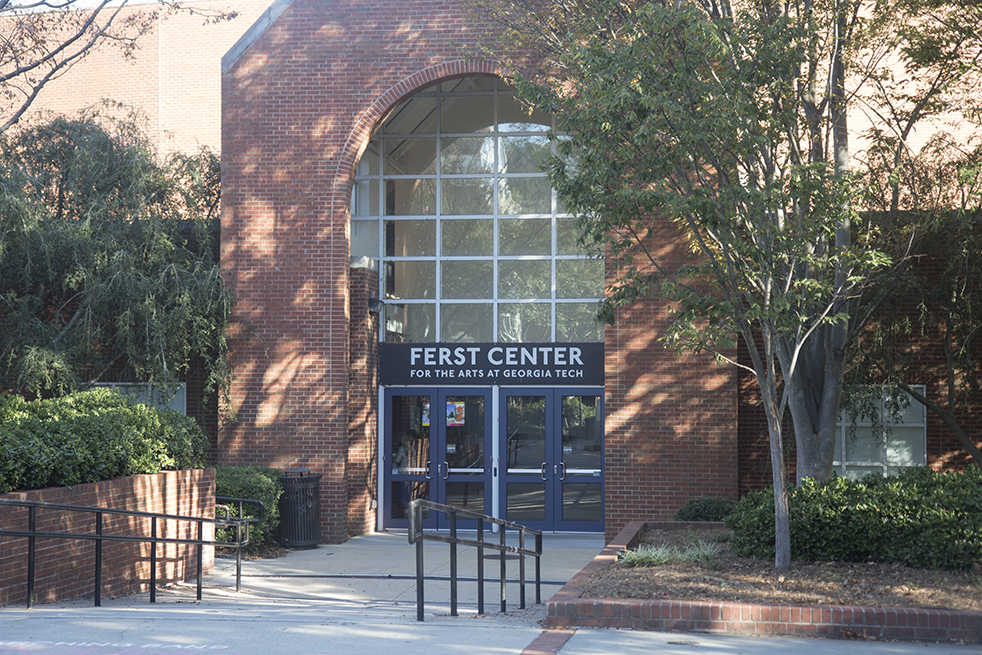On Wednesday, Oct. 11, the Ferst Center for the Arts at Tech’s Atlanta campus opened its doors to the top seven candidates in Atlanta’s mayoral race for an hour-and-a-half-long forum. Term-limited current Mayor Kasim Reed, a Democrat who has served since 2010, will be leaving an open seat for his job at the end of his term, and with 12 total candidates in the running, the spot has several contenders.
Televised on 11Alive and moderated by 11Alive anchor Jeff Hullinger, the candidates — City Councilmember Mary Norwood, City Councilmember Keisha Lance Bottoms, former Chief Operations Officer Peter Aman, City Council President Ceasar Mitchell, State Senator Vincent Fort, former City Council President Cathy Woolard, and City Councilmember Kwanza Hall — were asked pointed questions with one minute to respond. If a candidate mentioned another by name, the latter would get thirty seconds
of rebuttal.
Of the issues discussed, gentrification and housing affordability were generally at the forefront. Especially with the development of the Beltline and the closing of so-called “Murder Kroger” to make way for a 12-story office building, the concern over the rising costs of housing and the difficulty of keeping Atlantans in Atlanta was a topic of debate.
All candidates stated that they want to make housing less expensive. Aman pointed out that Atlanta is one of the least densely populated cities in Atlanta and suggested increasing the density: “We need to grow Atlanta … but we need to do so in an appropriate way.” Mitchell mentioned the need for a stronger, more effective tax policy to make sure “a senior citizen is not moved out of her home just because the taxes
are rising.”
When Fort took the floor, he made the decision to call out some of the other candidates’ voting records, in the process making the claim that he is the only one who has actually voted against displacement of Atlanta residents and worked against predatory lending and destabilization of neighborhoods.
“People can talk about displacement-free zones all they want, but when they vote to displace people, they ought to be held accountable,” Fort said.
Referencing Bottoms’s earlier comments that “redevelopment in and of itself is not a bad thing,” Fort said, “I think I heard one of my fellow candidates say that gentrification isn’t so bad. That person hasn’t spoken to the people I’ve spoken to in the last year … gentrification isn’t so bad unless you’re victimized by it.”
Moving the discussion on towards crime, Hall made reference to his recent legislation, signed by Mayor Reed, which decriminalizes possession of under one ounce of marijuana within the city of Atlanta.
Bottoms, in one of her responses, described her own experience with an incarcerated family member and said that “it’s unfortunate that our state leaders were too weak to make a real
change” before now.
Woolard was first to mention gun control, but Aman contributed to the conversation soon afterwards by making the claim that the “root of the problem” was education.
“We’re not going to police our way out of crime,” Aman said.
During some of the discussion in the debate over traffic and transportation, Woolard said pointedly that she was “not going to do what Norwood suggests” and tunnel to build more roads, which she implied was an idea similar to that of Republican gubernatorial candidate Casey Cagle. Norwood refuted the point, stating that her idea was dissimilar from Cagle’s in that it would be used for subways and not for cars.
Bottoms also confronted Norwood for what she saw as her opposition to annex several nearby cities into Atlanta. Norwood said in response to the comment that the cities in question did not match the all of the legal requirements necessary for them to be annexed.
In closing statements, all candidates gave brief pitches to the audience, reviewing their qualities.
Hall went first and emphasized unity, saying “Atlanta doesn’t need a white mayor, a black mayor, [or] a gay mayor … Atlanta needs a great mayor.”
Woolard closed with her tagline, “I’m fighting for ATL: Affordability, Transportation, and Livability.” Throughout the evening, despite firing a few shots at Hall and Norwood, Woolard also did not speak quite as much as some of her opponents.
Mitchell threw in a personal touch about his family and bridged into the defense of families and communities that he would launch as mayor: “I don’t want to be your next mayor. I want to serve you as your next mayor.” Mitchell spoke as such throughout the evening, saying “as mayor” or “when I’m mayor” in almost every one of his responses.
Norwood, building on the tone of her messaging throughout the night, emphasized her experience in government and stressed the need for utmost transparency, promising to “restore trust” between the people of Atlanta and their representation within the government.
Bottoms also infused her personal life into her statement, saying that she was running for four reasons — her four children.
Aman, having joked throughout the night about his lack of experience in public office, pointed out his extensive experience in business, which he claimed would translate well across all four sectors of society: government, private, nonprofit and constituency.
Lastly, Fort was the most applauded candidate of the debate during the course of the night. He ended with a call for action: “City Hall has lost its way … time has come for a change, and I am that change.”
The election is slated for Tuesday, Nov. 7 later this year, and a runoff, if it becomes necessary, will occur on Dec. 12, also Tuesday.
